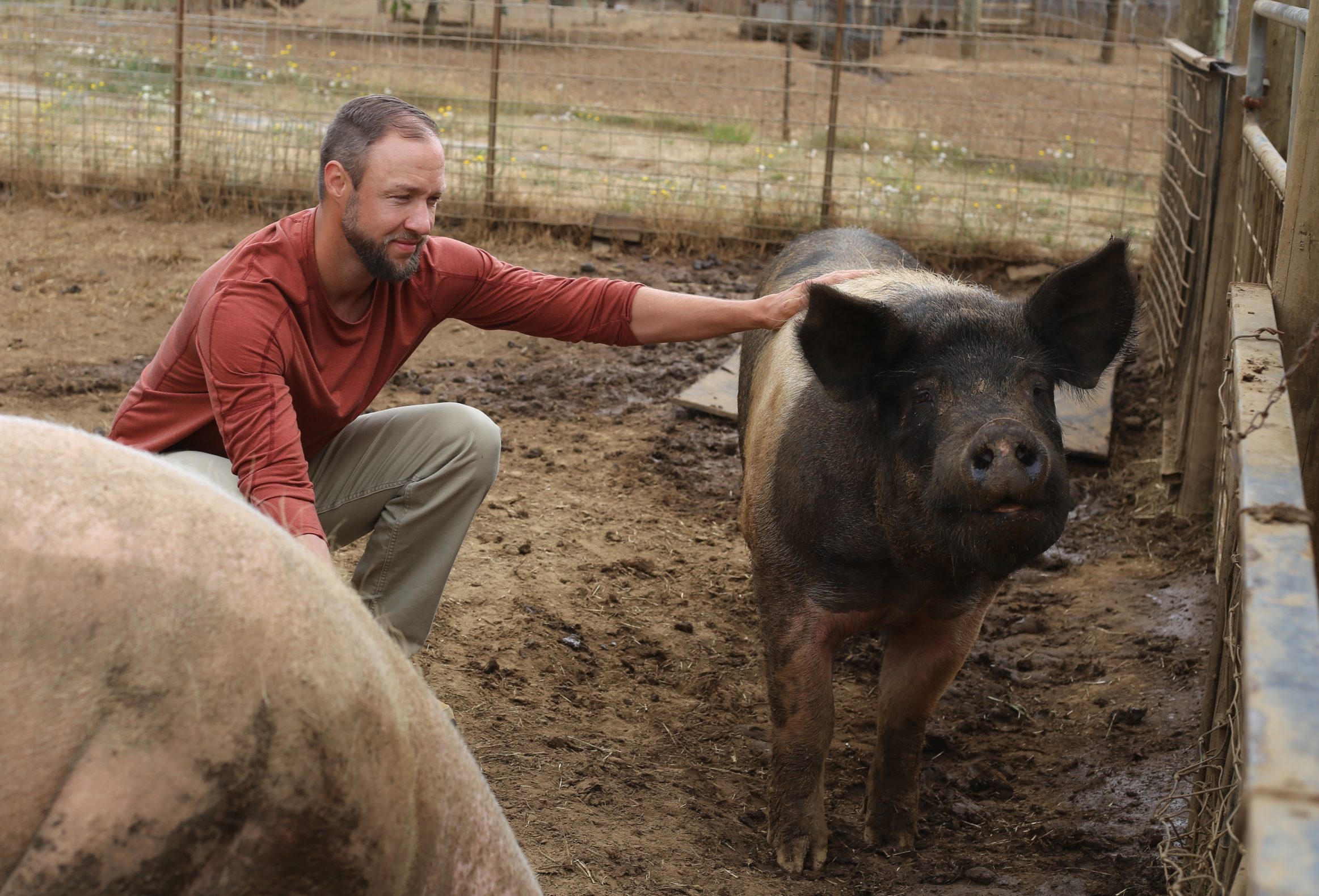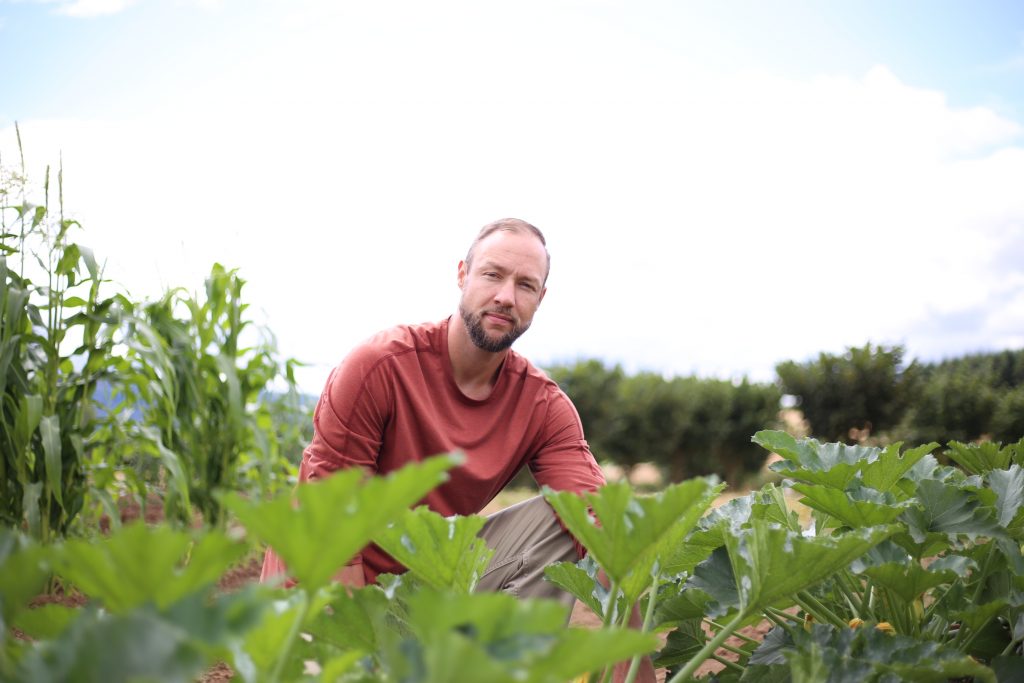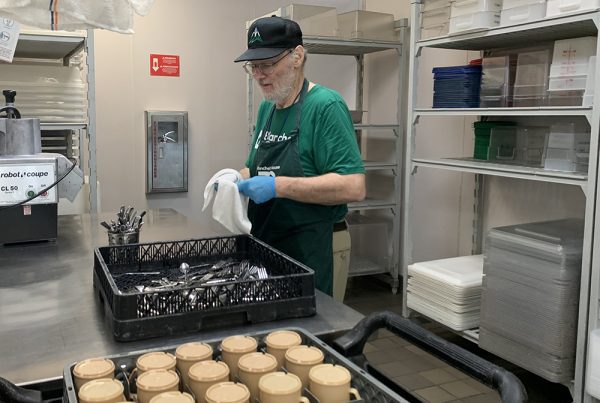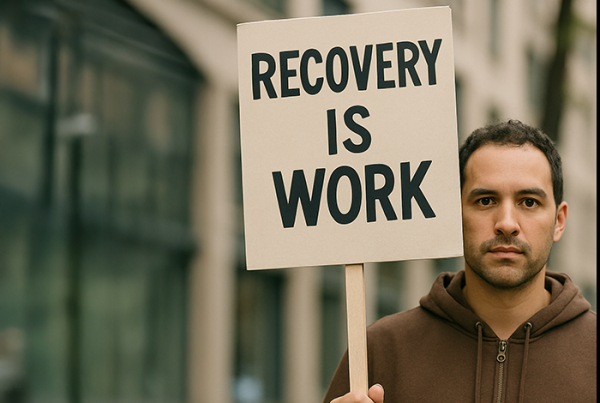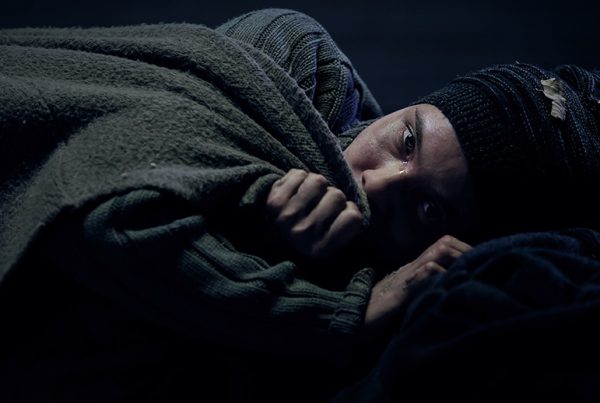A veteran finds a unique approach to recovery amongst pigs and gardens at Blanchet Farm.
After serving two tours in Afghanistan, Airborne Paratrooper Lindsey Stolz was diagnosed with Post Traumatic Stress Disorder (PTSD). A disorder in which a person has difficulty recovering after experiencing or witnessing a terrifying event. Back at home with his family in Oregon, he abused drugs and alcohol to cope. His substance abuse put a strain on his marriage and he left his family to get help with recovery.
Veteran’s Affairs (VA) got him into substance abuse treatment programs but he would soon relapse. The traditional approach to recovery wasn’t working for him. He needed something different.
“If I knew that a place like Blanchet Farm existed, I would have come sooner,” Stolz says. “The things that have really helped me here are the solitude and working with animals. I never really thought of myself as an animal person. I realized that with PTSD it can be tough to do social stuff. Even though I love talking to people it can leave me feeling worn out. So, to go down to the pigs and be able to think, ‘What do they need right now?’ It makes me feel really good. I get to show some love and feel some love without having the stress of “Oh, did I do it right?”
The farm outside Portland in Carlton, OR, offers men something traditional rehab programs do not, the opportunity to do meaningful physical work daily. Residents of the farm rise every morning at 5 a.m. to begin assigned chores. Gardening, cooking, caring for animals, beekeeping, woodworking, and building maintenance keep each man busy until 2 p.m.
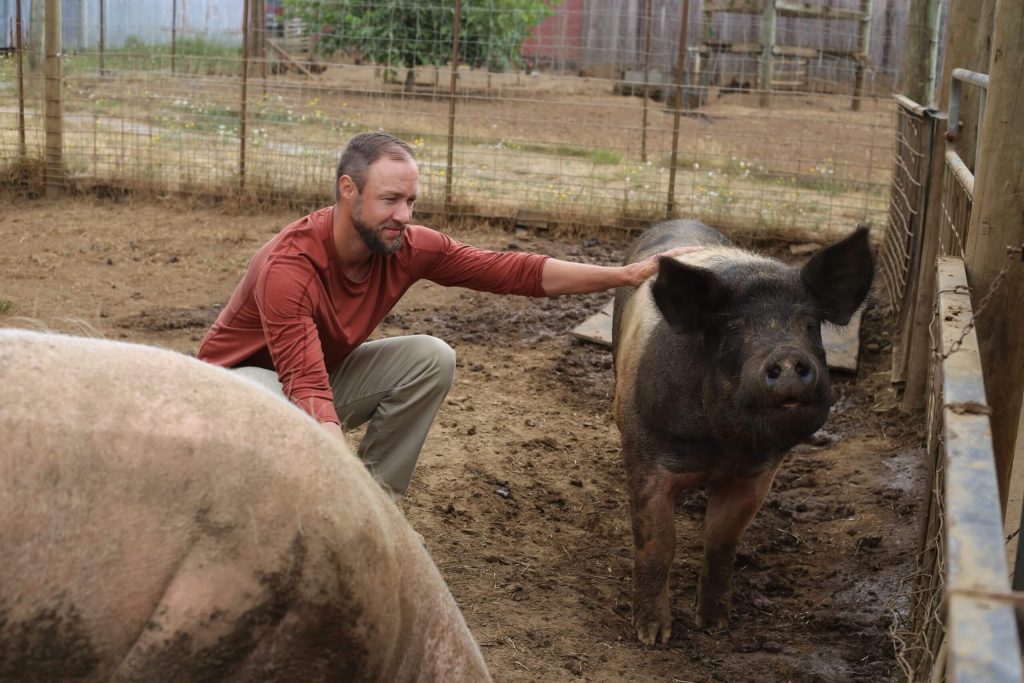
Lindsey Stolz tends to a pig kept for therapy at Blanchet Farm in Oregon.
Pigs Help Veteran With Addiction Recovery
Farm Manager Ross Sears assigns every new resident to the care and feeding of the five large pigs kept for therapeutic purposes. The farm also keeps goats, chickens, ducks, dogs, cats, and bees.
“It lets a guy kind of catch his breath,” says Sears. “Besides teaching accountability, the animals give the men here a reason to get up in the morning because they know they’ve got to get out there and make sure the pigs are fed and taken care of. Having a routine like this makes it easier for them when they do transition out of here.”
After three months of living at Blanchet Farm Stolz says he’s gained a better understanding of his past decisions and is making a plan for his future with the help of a Case Manager.
“Don’t give up on people.”
“I know this place is responsible somehow. When I’m out working in the garden with my hands in the dirt, it’s grounding me. The farm helps the body recalibrate. It forces your brain and body to simplify. I’ve gotten a little of the ability to zoom out. The work gives me time to reflect,” he says.
The farm also provides a fun place for Stolz’s two young daughters to visit him during his recovery. He hopes to one day mend his marriage and family completely.
“I feel blessed,” Stolz says. “Don’t give up on people. I have been shown grace here.”
-By Julie Showers
You can give a veteran like Lindsey a chance to heal by donating to Blanchet House & Farm.














